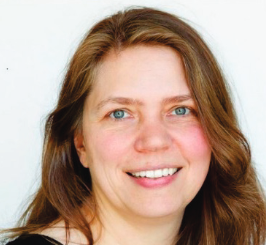
LECTURE - "Sugar coated nanoparticles big and small : how polymer science can enhance nanomedicine"
The Institut de Chimie of the CNRS has the great honor to welcome Professor Martina Stenzel (University of New South Wales, Sydney) as laureate of the 2023 Ambassador of Chemical Sciences in France.
Professor Stenzel will deliver a plenary lecture about sugar-coated nanoparticles. Her lecture entitled “Sugar coated nanoparticles big and small – how polymer science can enhance nanomedicine” will be organized by the Institut Galien and will take place on :
November 28th | 14:00
Building Henri Moissan, Amphitheater Hervé Daniel
ABSTRACT
Nanomedicine is a field of interesting interest. Rapid development of nanotechnology has allowed the incorporation of multiple therapeutic, sensing and targeting agents into nanoparticles. Most commercially available nanoparticles use poly(ethylene glycol) PEG as hydrophilic coatings. However, materials based on sugars such as polymers with pendant carbohydrates, coined glycopolymers, are attractive alternatives. Carbohydrates play a pivotal role in many biological processes and by using glycopolymers we mimic naturally occurring events.
The presence of carbohydrates on the surface on nanoparticles can therefore help the uptake of these nanoparticles into mammalian cells. In this presentation, we look into a range of nanoparticles based on glycopolymers, ranging from ultrasmall nanometer sizes nanoparticles to large micron-sized 2D platelets and discuss how these particles can be used in drug delivery applications. A focus will be how small molecules such as drugs can be loaded and how the drugs change the properties of polymers, and thus their biological activity.
BIOGRAPHY
Martina Stenzel studied chemistry at the University of Bayreuth, Germany, before completing her PhD in 1999 at the Institute of Applied Macromolecular Chemistry, University of Stuttgart, Germany. She started as a postdoctoral fellow at UNSW in 1999 and is now a full Professor in the school of chemistry as well as co-director of the Centre for Advanced Macromolecular Design (CAMD) Her research interest is focused on the synthesis of functional nanoparticles for drug delivery applications. She is interested in using plastic material to shape nanoparticles into different sizes and explore how these nanoparticles interact with cancer cells. She is scientific editor of Materials Horizons and serves currently on a range of editorial boards. She received a range of awards including the 2011 Le Fèvre Memorial Prize of the Australian Academy of Science and the H.G.Smith Medal. In 2018, Martina has been elected as a fellow to the Australian Academy of Science and is currently the chair of the National Chemistry Committee of the Academy.

